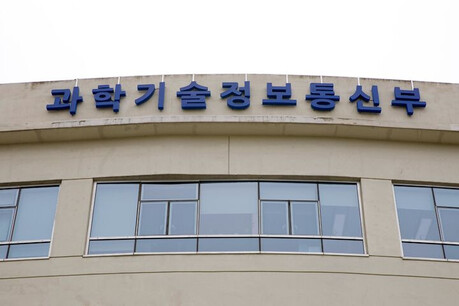
Argentina's announcement of uncovering a large-scale operation by Russian intelligence agencies within its borders has shocked the international community. This discovery goes beyond mere espionage, revealing a widespread attempt by the Russian government to spread pro-Kremlin propaganda and manipulate public opinion in South America. Particularly alarming is the alleged link between this operation and the notorious mercenary group Wagner, led by the late Yevgeny Prigozhin, suggesting that Russia's foreign operations extend much deeper into the world than previously thought.
'La Compania' Network: The Kremlin's Hidden Hand
Manuel Adorni, spokesperson for the Argentine presidential office, officially announced the existence of the Russian intelligence operation, dubbed 'La Compania' (The Company), at a press conference on June 18 (local time), citing the findings of the country's intelligence agencies. According to major foreign media outlets such as AFP and Infobae, this network is reportedly linked to the Russian government and the Kremlin's 'Project Lakhta.' Project Lakhta has already been sanctioned by the U.S. Treasury Department for allegedly attempting to interfere in elections in the States and Europe, and was once reportedly under Prigozhin's supervision.
The alleged masterminds of the 'La Compania' network are Lev Konstantinovich Andriashvili, a Russian national residing in Argentina, and his wife, Irina Yakovenko. Argentine authorities stated that they received financial support to carry out influence operations aimed at advancing Russia's geopolitical interests and recruiting local collaborators.
Adorni explained that their ultimate goal was to "form groups loyal to Russian interests" to develop disinformation campaigns targeting the Argentine nation. This included creating social media content, influencing non-governmental organizations (NGOs) and civil society groups, organizing focus groups for Argentine citizens, and collecting political intelligence. This highlights Russia's multi-layered and systematic approach to exerting influence across Argentine society.
Prigozhin, Wagner Group, and Russia's Foreign Operations
A particularly noteworthy aspect of this incident is the link between the 'La Compania' network and Russia's 'Project Lakhta,' which was once under the supervision of Yevgeny Prigozhin. Prigozhin was the head of the Wagner Group, which deployed Russian mercenaries in various battlefields, including the siege of Bakhmut, one of the most intense battles in the Ukraine war. He died in a suspicious plane crash in August 2023, approximately two months after leading a short-lived armed rebellion against the Kremlin.
The fact that Prigozhin's shadow continues to loom over Russia's foreign operations even after his death is highly significant. The Wagner Group has played a key role in expanding Russia's military and political influence in Africa and the Middle East, and has often been involved in sensitive intelligence activities. The connection between Project Lakhta and Prigozhin indicates that Russia's foreign intelligence operations can go beyond mere information gathering to active intervention such as political agitation, public opinion manipulation, and even election interference.
The discovery of a spy network in Argentina linked to Prigozhin's shadow strongly suggests that Russia may be employing similar influence-building strategies in South America. This poses a serious threat to the security and sovereignty of South American nations and is likely to further heighten international tensions.
Visa Waiver Agreements and Russian Migration: A Breeding Ground for Espionage?
Since Russia's full-scale invasion of Ukraine in February 2022, there has been a significant increase in Russian migration to Argentina, leading some officials to worry that this migration could be linked to clandestine intelligence operations. In particular, the visa-waiver agreement signed between Argentina and Russia in 2009 has been identified as a tool facilitating such espionage. This agreement remains in effect despite growing security concerns.
Argentina offers relatively easy immigration procedures for Russians and attractive factors such as birthright citizenship, making it a popular destination for "birth tourism." However, concerns have been consistently raised that these open immigration policies could provide a covert infiltration route for Russian intelligence agents and allow them to establish long-term espionage bases. This incident proves that these concerns are not merely unfounded anxieties.
Argentine authorities believe that espionage activities are often carried out through visa-waiver agreements, suggesting that Russia may be exploiting these agreements to dispatch foreign intelligence agents under the pretext of their citizens' free movement. The Argentine government is expected to consider various measures, including a review of the visa-waiver agreement, to counter these security threats.
Argentina's Response: Creation of an FBI-Modeled Federal Investigations Department
In immediate response to the threat posed by the Russian spy network, Argentina announced the creation of a new Federal Investigations Department (DFI). This new agency, partially modeled after the U.S. FBI, will focus on combating organized crime, terrorism, and foreign espionage. Investigators will receive advanced technological training and be supported by experts in law, psychology, and computer science.
Adorni emphasized that "Argentina will not bow to any foreign influence" and stated that while some investigation findings have been declassified, a significant portion remains classified as state secrets. This indicates that Argentina takes this incident very seriously and will take decisive action to protect its sovereignty and security.
The establishment of the DFI demonstrates Argentina's commitment to strengthening its intelligence capabilities and effectively responding to complex threats in a rapidly changing international security environment. The focus on foreign espionage, in particular, can be interpreted as a strong message that Argentina will no longer tolerate attempts by foreign powers like Russia to intervene.
Repercussions for the South American Security Environment
The discovery of the Russian spy network in Argentina is expected to have significant repercussions for the security environment in South America. While there has been a perception that South America was relatively free from Russian intelligence activities compared to Europe or North America, this incident clearly reveals Russia's active attempts to expand its influence in the region.
This incident will serve as a wake-up call to other South American countries. Russian intelligence activities can take various forms, including the dissemination of disinformation, manipulation of public opinion, and potential instigation of political instability. Therefore, South American nations face an increased need to strengthen their security capabilities, share information on potential Russian threats, and explore joint response strategies.
Furthermore, Western countries such as the United States and Europe are likely to strengthen intelligence cooperation with Argentina to more closely monitor and counter Russia's foreign operations. This implies that the confrontation between the U.S. and Russia could extend to South America, further complicating the international security environment.
Conclusion: The Dawn of a New Information War
Argentina's discovery of the Russian spy network reveals a new facet of 21st-century information warfare. It proves that inter-state competition, utilizing asymmetric means such as information manipulation, public opinion agitation, and social disruption, is intensifying beyond physical conflict. The fact that this incident is linked to Prigozhin, the former head of the Wagner Group, suggests that Russia's foreign operations are dangerous attempts to destabilize and influence the political landscape of specific countries, beyond mere intelligence gathering.
Argentina has used this incident as an opportunity to strengthen its security system and demonstrate a strong will to resist foreign intervention. This provides an important lesson for other countries and emphasizes the need for the international community to monitor Russia's foreign operations more closely and respond collectively. The Kremlin's shadow cast over South America is no longer a hidden threat, and a resolute response from the international community is now demanded.
[Copyright (c) Global Economic Times. All Rights Reserved.]






























